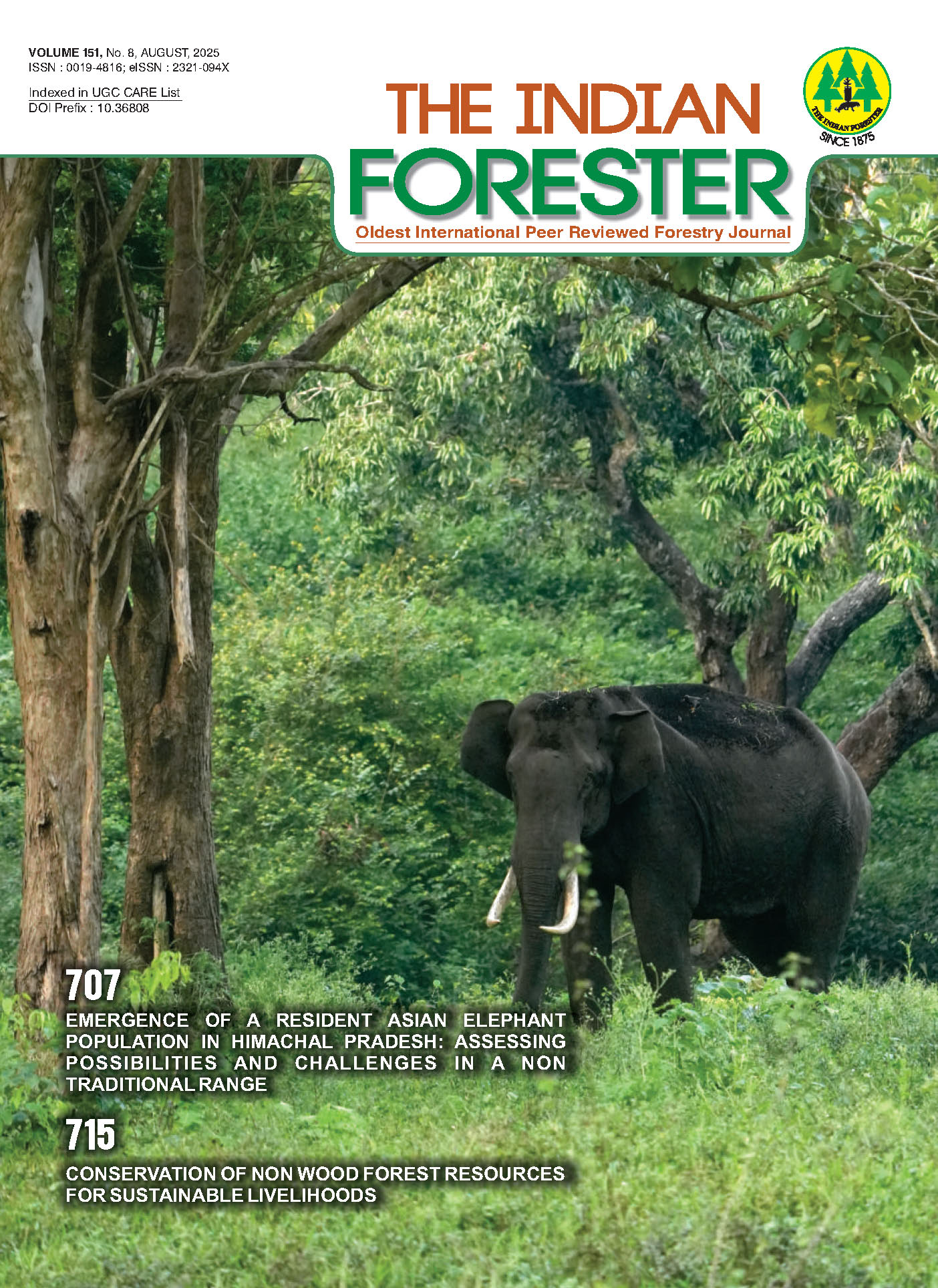Conservation of Non Wood Forest Resources for Sustainable Livelihoods
DOI:
https://doi.org/10.36808/if/2025/v151i8/170879Keywords:
Non-wood forest resources, Non-wood forest products, National medicinal plants board, Forest management, Minor forest produce with major economic stakes.Abstract
Forest is a unique renewable natural local resource of global importance. India is one of the mega biodiversity countries of the world, and is home of 7.7% of world's bio-diversity. Non-wood forest products (NWFPs), also called Minor Forest Produce, although they are by no mean minor - are known to be source of livelihoods for over 300 million people living in and around forests and are in fact associated with their socio-economic and cultural lives. However, due to timber centric forest management, NWFPs have not got the importance they deserve. In recent years, the Non Wood Forest Resources (NWFRs) have gained importance due to their being vital source of livelihood for forest dependent communities and having a multiplier effect in the economy through employment generation in downstream value addition and trading activities. Multiplicity of Acts having a bearing on NWFRs has further compounded the prevalent confusion with regard to their ownership and management responsibilities.
In this paper an attempt is made to analyze the legal framework impacting upon the NWFRs and the current status of their assessment and management, and suggest strategy for their conservation and management for sustainable livelihoods in India.
References
Anon. (2012). Survey of plant species resources of Chhattisgarh state under European Union funded Non-Timber Forest Produce based employment oriented Project, (in Hindi), Published by the Chhattisgarh State MFP (Trade and Development) Cooperative Federation Ltd., p. 298.
Bahuguna V.K. and Bisht N.S.(2013). Valuation of Ecosystem Goods and Services from Forests in India, Indian Forester, 139(1): 1-13.
Forest Survey of India, (2019). India State of Forest Report, 208p.
Hazari Sujoy, Mamoni Kalita and Biswajit Lahiri (2023). The value of Non-Timber Forest Products in Promoting India's Rural Livelihoods, Indonesian Journal of Forestry Research, 10(2):221-237, October 2023. DOI: https://doi.org/10.59465/ijfr.2023.10.2.221-237
International Tropical Timber Organization, (2006). Completion Report - Pre-Project Report No. PPD 5/00 Sustainable Management of NTFP in Maharashtra, India, 39p.
Ministry of Environment and Forests, GOI, (1988).National Forest Policy, 9p.
Mishra C.K, and G. Ramakrishna Naidu, (2014). Inventory of Non-timber Forest Products through Adaptive cluster Sampling, Indian Forester,140(1): 1-10, ,2014
MOEFCC, (2014). National Working Plan code, 2014, 86p.
MOEFCC, (2023). National Working Plan code, 2023, 163p.
Srivastava V.K. and Anitha D. (2011). Mapping of non-timber forest products using remote sensing and GIS, Tropical Ecology,51(1): 107-116, 2010
Statista (2023). Gross value added from non-timber forest products India FY 2012-2020. https://www.statista.com/statistics/1083252/india- economic-contribution-of-non-timberforest-products/
Ved D.K. and Goraya G.S. (2007). Demand and Supply of Medicinal Plants in India, National Medicinal Plants Board, New Delhi and Foundation for Revitalisation of Local Health Traditions, Bangalore, India.
Downloads
Downloads
Published
How to Cite
Issue
Section
License
Unless otherwise stated, copyright or similar rights in all materials presented on the site, including graphical images, are owned by Indian Forester.





